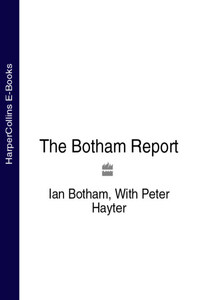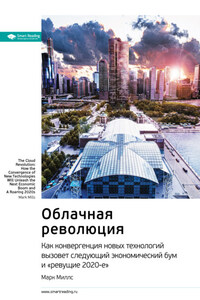HarperNonFiction
An division of HarperCollinsPublishers Ltd. 1 London Bridge Street London SE1 9GF
www.harpercollins.co.uk
Copyright © Mannez Promotions Ltd 1997
First published in hardback in 1997 by CollinsWillow
Photographs supplied by Allsport, Patrick Eagar and David Munden
The Author asserts the moral right to be identified as the author of this work
A CIP catalogue record for this book is available from the British Library
All rights reserved under International and Pan-American Copyright Conventions. By payment of the required fees, you have been granted the nonexclusive, nontransferable right to access and read the text of this ebook on-screen. No part of this text may be reproduced, transmitted, downloaded, decompiled, reverse-engineered, or stored in or introduced into any information storage and retrieval system, in any form or by any means, whether electronic or mechanical, now known or hereinafter invented, without the express written permission of HarperCollins ebooks
HarperCollinsPublishers has made every reasonable effort to ensure that any picture content and written content in this ebook has been included or removed in accordance with the contractual and technological constraints in operation at the time of publication
Source ISBN: 9780002187718
Ebook Edition © JANUARY 2017 ISBN: 9780007582044 Version: 2017-01-18
‘English cricket is in crisis, of that there is no doubt’
On Saturday 28 December 1996, the third day of England’s second Test against Zimbabwe in Harare, English cricket celebrated a bittersweet tenth anniversary.
It was ten years to the day when, on the 1986–87 tour of Australia, under captain Mike Gatting, England last won the Ashes; ten years to the day when England’s descent to the bottom rung of international cricket began.
I remember the moment we achieved what Englishmen regard as the ultimate cricketing goal as though it was yesterday. One-nil up in the series with two matches to play, we arrived at Melbourne for the Christmas Test, confident that we would achieve the result that would give us the series. Our confidence was not misplaced. We won in three days and we were that good. Gladstone Small and I both took five wickets to dismiss the Australians for fewer than 150, then Chris Broad hit a century to set up victory by an innings. How sweet a moment it was when Merv Hughes swung a delivery from Phil Edmonds, our left-arm spinner, into Gladstone’s hands on the square leg boundary to bring the match to an end and signal the start of our celebrations.
Ten years later, on that fateful day in Harare, England were being bowled out by a team representing a country that wasn’t even playing Test cricket when we last won the Ashes, dismissed for 156 in less than a full day’s play. It was one of the most pathetic batting performances I’ve seen from an England team, but the fact that the overwhelming public reaction to it was one of resignation rather than shock underlined just how far English cricket had fallen during a decade in the doldrums.
Then Zimbabwe’s young fighters completed England’s indignity by winning the two final one-day games of the three-match series to secure a 3–0 whitewash.
David Lloyd, the England coach, on his first senior overseas tour, had already suffered ridicule back home for his comments after the tied first Test in Bulawayo, when, after a fracas with an official of the Zimbabwean Cricket Union he claimed, ‘We murdered them. We hammered them. They know it, and we know it.’ The team had also earned a reputation, unfair or not, for surliness.
For the armchair critics back home, England’s final one-day defeat by 131 runs was meat and drink. Conservative MP Terry Dicks tucked in with the greatest relish. He said, ‘I think the tour should be abandoned now. They should not be allowed to go out to the sun in New Zealand. They should be brought home in disgrace.’ Now really gorging himself, he carried on, ‘I would sack the management and half the team. I have never been so ashamed to be English.’ Another Tory MP, Bill Cash, said English cricket had reached a new low. ‘We have got to shake the whole thing up and produce some new talent,’ he said. It wasn’t just the rent-a-quote politicians who climbed into England. The former England captain Brian Close, my mentor as a young player at Somerset and a man whose opinions on cricket are usually direct and to the point said simply, ‘The players want their arses kicking.’














